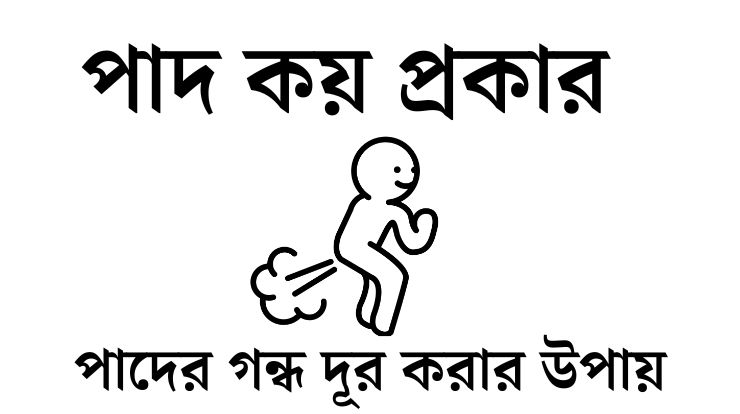Sports betting, a domain rich with excitement and uncertainty, often sees bettors relying heavily on psychological instincts rather than just the stats or the strategy. Understanding the psychological biases at play can significantly improve betting decisions. Bettors are not merely calculating odds; they are also influenced by their emotions, past experiences, and even the behavior of other bettors around them. These psychological elements can cloud judgment, leading to choices that might not be optimal from a statistical standpoint. Recognizing these influences is the first step towards smarter, more disciplined betting. By diving deeper into how these biases affect betting behaviors, this article aims to provide insights that help bettors recognize when their decisions might be swayed by factors beyond the numbers, enhancing their ability to make more rational, informed choices.
The Impact of Overconfidence on Betting Decisions
Overconfidence often stems from previous successes in betting, creating a deceptive sense of expertise or a skewed perception of one’s ability to predict outcomes. When bettors experience a series of wins, it can lead to an inflated confidence in their betting skills, which might not accurately reflect their true predictive capabilities. This cognitive bias can cause individuals to overlook important statistical data or rational assessments of risk, leading them to place larger, riskier bets. A striking example of this is observed with enthusiastic bettors on 1xbet in India, where the thrill of previous victories might tempt them to ignore the unpredictability of sports outcomes. This psychological trap not only jeopardizes the bettor’s finances but also clouds their ability to make decisions based on logical, unbiased information. By understanding and acknowledging the influence of overconfidence, bettors can adopt a more measured approach, focusing on data-driven strategies rather than the misleading assurance of a winning streak.
Understanding Loss Aversion in Sports Betting
Loss aversion is a powerful psychological force that significantly influences betting behavior, often causing bettors to act irrationally to avoid losses rather than to achieve gains. This bias can be particularly detrimental in sports betting, where the fear of losing can lead to overly conservative or paradoxically risky behaviors as bettors attempt to recoup losses.
To illustrate, consider a bettor facing a series of losses. Instead of evaluating each bet on its own merits, they might make increasingly desperate bets in an attempt to recover their funds quickly. Here are several typical manifestations of loss aversion in sports betting:
- Doubling down on bets to recover losses quickly
- Refusing to cut losses on a bad bet
- Placing safer bets to avoid the possibility of losing
- Ignoring potentially profitable bets due to fear of further losses
- Overvaluing less risky games or events
Recognizing and managing loss aversion can significantly alter a bettor’s approach. By understanding these patterns, bettors can learn to make decisions that are more aligned with long-term success rather than short-term recovery. This shift requires a disciplined approach to betting, focusing on objective data and long-term strategy rather than emotional responses to losses. Such a perspective helps in maintaining a steady course even in the face of potential losses, encouraging more rational decision-making in sports betting scenarios.
The Role of Herd Behavior in Sports Betting
Herd behavior is a common bias in sports betting where bettors tend to follow the crowd, assuming that the majority’s choice reflects the most likely outcome. This psychological phenomenon can significantly distort the betting landscape, as it often leads to skewed odds and potentially unprofitable betting decisions. When a large number of bettors place the same bet, it can create an artificial inflation of the odds, reducing the value of the bet despite its popularity.
An excellent illustration of this can be seen with the use of the 1xbet app, where live betting trends are visible to all users. Bettors might notice a surge in bets on a particular team and decide to follow suit, not wanting to miss out on what they perceive as a sure win. This crowd-following behavior disregards individual analysis and can lead to significant losses if the popular bet does not come through.
To combat herd mentality, it’s essential for bettors to:
- Rely on their own research and analysis.
- Be aware of the influence of public sentiment on betting odds.
- Recognize that high volumes of bets on a specific outcome do not guarantee success.
- Stay disciplined and not be swayed by the excitement generated by a crowd.
By understanding and mitigating the effects of herd behavior, bettors can make more informed decisions, potentially leading to higher profitability in sports betting.
Navigating the Pitfalls of Confirmation Bias in Sports Betting
Confirmation bias is a cognitive distortion where bettors tend to favor information that confirms their pre-existing beliefs or hypotheses, disregarding evidence that contradicts them. This bias can lead to misguided decisions in sports betting, as individuals may selectively gather or remember information that supports their desired outcome rather than objectively analyzing all data.
For instance, a fan of a specific football team might place bets in favor of their team based on selective positive stats and ignore broader, less favorable analyses. To effectively counteract confirmation bias and improve betting outcomes, bettors should consider the following steps:
- Actively seek out and consider information that challenges their assumptions.
- Utilize a variety of sources for gathering data to get a well-rounded view of the betting scenario.
- Develop a structured betting strategy that relies on objective criteria rather than subjective preferences.
By consciously incorporating these steps into their betting routines, individuals can broaden their perspective and make decisions that are more grounded in reality. This approach not only enhances the accuracy of their bets but also promotes a more disciplined and rational betting practice.
The Illusion of Control in Sports Betting
The illusion of control is a psychological bias where bettors believe they can influence the outcome of a game, even when they clearly cannot. This bias is particularly potent in sports betting, where players might think that their knowledge or betting strategies give them an edge over the randomness of sports events. For example, a bettor might feel that by watching numerous games and analyzing team statistics, they can predict the outcome of a match more accurately than the odds suggest.
However, it’s crucial to recognize that many factors influencing the outcome of sports events are beyond anyone’s control, such as unforeseen player injuries, weather conditions, or simply unexpected gameplay events. Acknowledging the limits of one’s influence helps maintain a realistic perspective on betting. Bettors who understand and accept these limits are more likely to approach betting with a cautious, thoughtful mindset, which can lead to more rational decision-making and potentially better betting outcomes.
Strategies to Overcome Betting Biases
In conclusion, overcoming psychological biases in sports betting is essential for making sound, profitable decisions. Bettors can achieve this by cultivating self-awareness, adhering to a disciplined betting strategy, and continuously educating themselves about cognitive biases. It’s also beneficial to maintain a record of betting decisions and outcomes to objectively assess one’s performance. By actively working to counteract biases and applying analytical methods, bettors can enhance their ability to navigate the complexities of sports betting with greater success.


